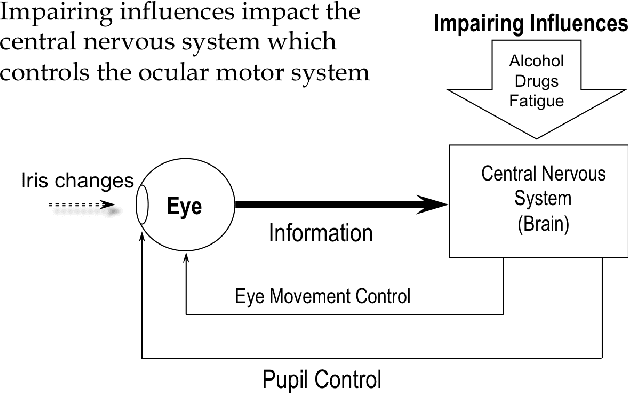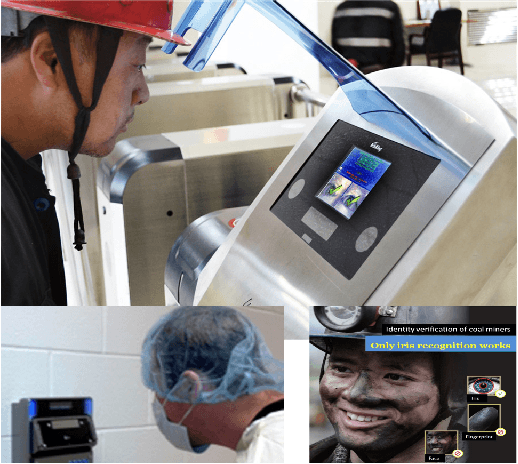Learning to Predict Fitness for Duty using Near Infrared Periocular Iris Images
Paper and Code
Sep 04, 2022



This research proposes a new database and method to detect the reduction of alertness conditions due to alcohol, drug consumption and sleepiness deprivation from Near-Infra-Red (NIR) periocular eye images. The study focuses on determining the effect of external factors on the Central Nervous System (CNS). The goal is to analyse how this impacts iris and pupil movement behaviours and if it is possible to classify these changes with a standard iris NIR capture device. This paper proposes a modified MobileNetV2 to classify iris NIR images taken from subjects under alcohol/drugs/sleepiness influences. The results show that the MobileNetV2-based classifier can detect the Unfit alertness condition from iris samples captured after alcohol and drug consumption robustly with a detection accuracy of 91.3% and 99.1%, respectively. The sleepiness condition is the most challenging with 72.4%. For two-class grouped images belonging to the Fit/Unfit classes, the model obtained an accuracy of 94.0% and 84.0%, respectively, using a smaller number of parameters than the standard Deep learning Network algorithm. This work is a step forward in biometric applications for developing an automatic system to classify "Fitness for Duty" and prevent accidents due to alcohol/drug consumption and sleepiness.
 Add to Chrome
Add to Chrome Add to Firefox
Add to Firefox Add to Edge
Add to Edge